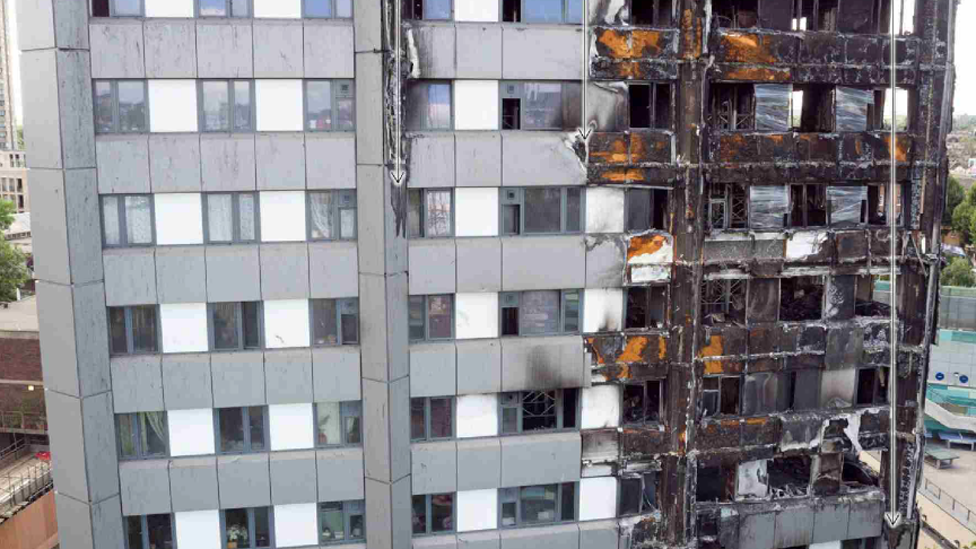Grenfell Tower inquiry: 'Whistleblower' refusing to give evidence
- Published
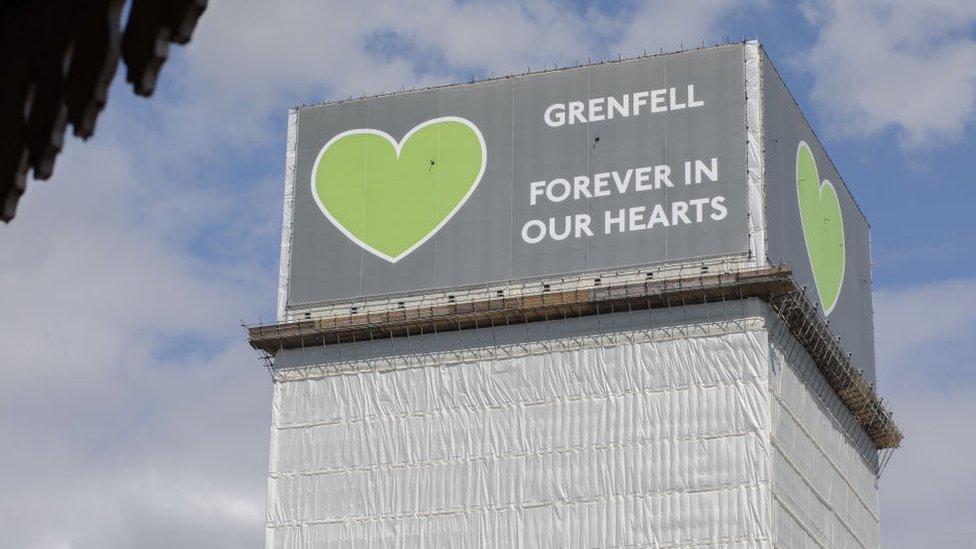
A self-described whistleblower at the company which made the cladding used on Grenfell Tower has refused new requests to give evidence to the public inquiry.
Claude Wehrle, who worked for Arconic, says he fears he might breach a law in France which prevents evidence being given to proceedings abroad.
An inquiry letter seen by the BBC reveals he is one of at least two employees who are holding out.
Seventy-two people were killed in the fire in North Kensington in June 2017.
The inquiry is now in its second phase and is examining the causes of the fire, including how the Grenfell Tower came to be in a condition which allowed the blaze to spread in the way it did.
Last month, Mr Wehrle told the BBC, working jointly with CBS, that he could not speak without permission from Arconic's lawyers. Arconic says that is not true.
Though Mr Wehrle no longer works at the US company, when contacted by phone in November in France, he claimed that law firm DLA Piper was influencing his decisions.
"DLA Piper is handling everything," he said. "Everything has to go through them."
"I am a good soldier and I follow what is asked of me, and on this point, it is very touchy and important for me to follow the rules."
DLA Piper is an international law firm which is representing Arconic and its current employees during investigations by the Grenfell Tower Inquiry and the Metropolitan Police Service.
A joint investigation by the BBC and CBS News has uncovered emails suggesting the firm was handling legal approaches to Mr Wehrle earlier this year.
However, in a statement, DLA Piper said it was no longer advising "certain other individuals associated with [Arconic's architectural subsidiary] AAP SAS in France".
Arconic has been paying for Mr Wehrle to have legal representation since July but stressed that it did not have any influence over his decisions.
Another firm in France, Navacelle Law, said it was now representing him independently.
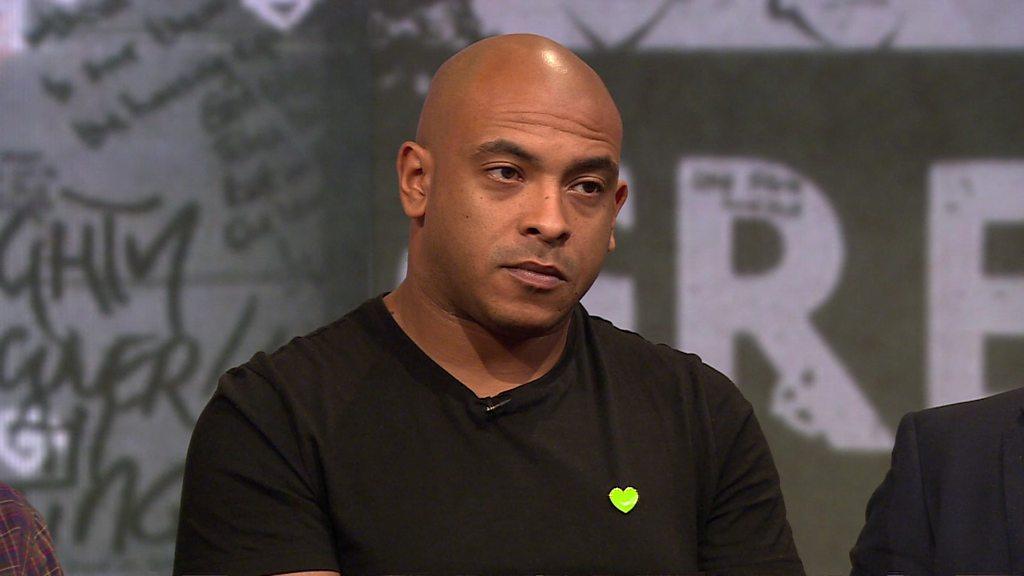
Karim Mussilhy, who lost his uncle Hesham Rahman in the fire, delivered a letter of protest to the French Embassy this week
A letter to "core participants" of the inquiry, seen by the BBC, reveals Mr Wehrle is one of at least two former employees of the cladding manufacturer Arconic who remain intent on not giving oral evidence.
That is despite a statement this week by the French government. It said there was no reason for any French citizen to fear criminalisation at the Grenfell Tower Inquiry.
When the BBC spoke to Mr Wehrle in November he said "my target is not, and will never be, to go against Arconic".
"It is awful what happened, for sure, but... the fire didn't only have one cause. It is linked to a lot of events that happened one after the other."
Mr Wherle said he had given the inquiry "as much as possible, I gave many, many, many exchanges of emails".
When asked whether he felt that he had done the right thing by raising concerns internally he said, "that's for sure."
"In French we say "donner d'alert". I don't know if you know what I mean by this: whistleblower."
"That was my role and it was a difficult situation, trust me," he said.
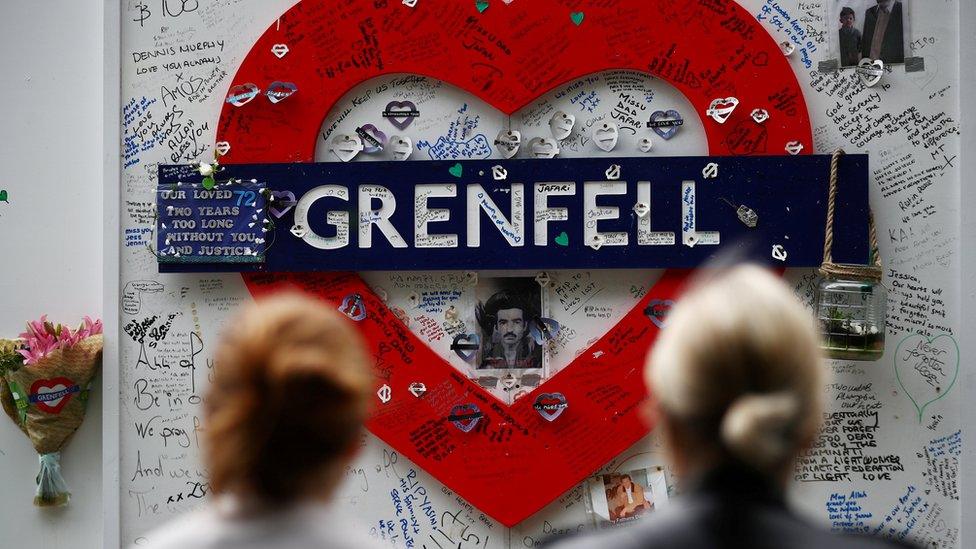
Karim Mussilhy, who lost his uncle Hesham Rahman in the fire, delivered a letter of protest to the French Embassy this week.
"We need these people to come to the country and tell the truth. It's in the interest of public safety," he said.
"Thousands of people are living in homes with the material that caused the spread of the fire and caused the deaths of their families and they must come here in the interest of public safety.
"They must come and tell the truth so we make sure that this never happens again."
Mr Wehrle was a technical manager at Arconic and his testimony is central to the inquiry's investigations into why flammable cladding was installed on the tower.
His knowledge of concerns within the company goes back at least as far as 2010.
During this period Arconic tested its Reynobond PE aluminium cladding product and found it to have worse performance than expected when exposed to fire.
In an email that year to colleagues, Mr Wehrle said that his company's concerns about the performance of the cladding were something "we have to keep as VERY CONFIDENTIAL", external.
The BBC has also previously revealed that he emailed customers in 2015 to warn them that according to the new tests the cladding used at Grenfell Tower had a fire rating of class E, on a scale from A1 to F.
In the email he said he was attempting to address "concerns about the product's fire reaction class in the UK".
However, Arconic did not inform the body which issues product specification certificates in the UK.
The company says it was not responsible for designing cladding systems which used its product or for ensuring they met the requirements of the building regulations.
Mr Wehrle has failed to respond to recent approaches from the BBC.
Additional reporting by: Haley Ott of CBS News
- Published16 December 2020
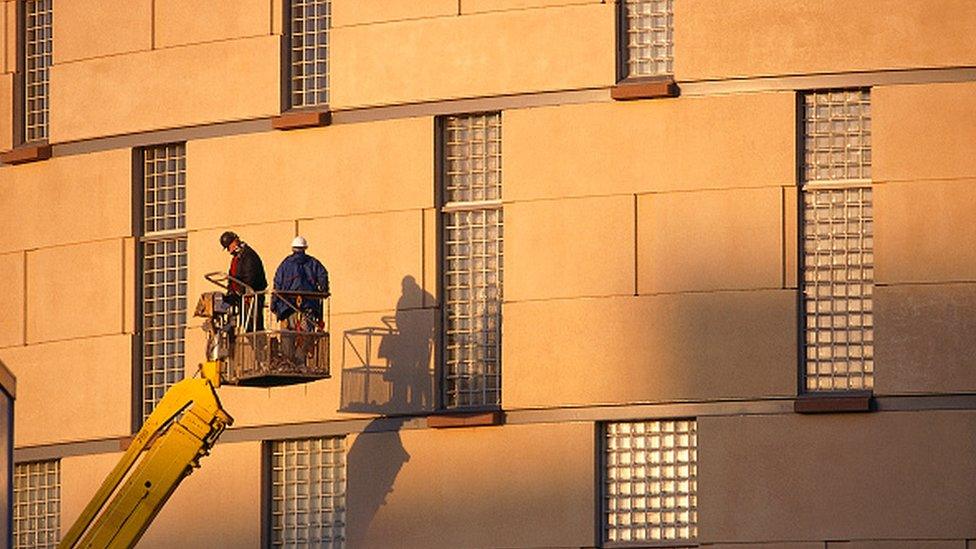
- Published24 November 2020
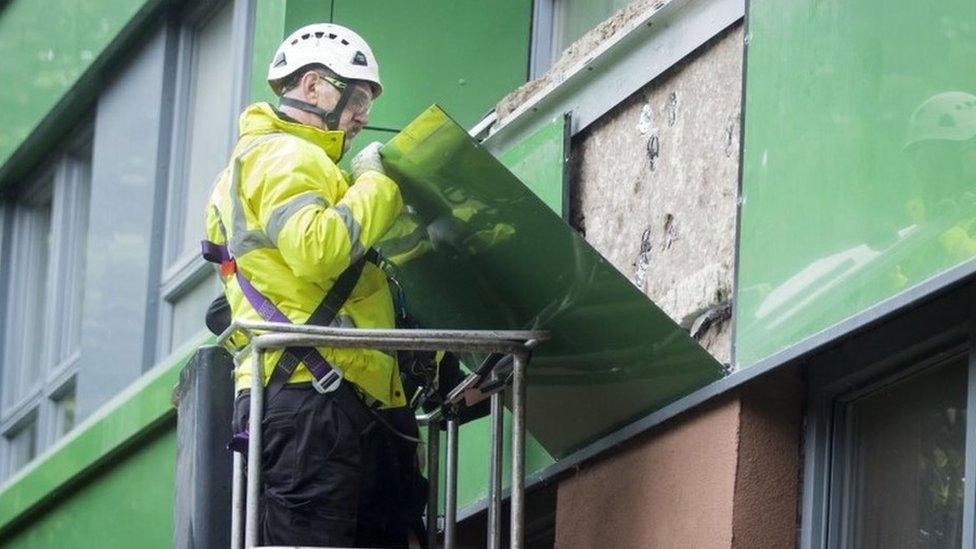
- Published5 November 2020

- Published29 October 2019
